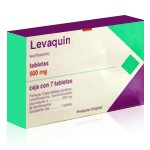Understanding Abdominal Organ Infections and Their Management


Understanding Abdominal Organ Infections: Causes, Symptoms, and Treatment Options
Abdominal organ infections encompass a wide array of medical conditions caused by bacteria, viruses, fungi, or parasites affecting organs within the abdominal cavity. Prompt diagnosis and treatment are essential to prevent complications. Below is an in-depth look at common abdominal organ infections, their symptoms, and available treatments.
Appendicitis
- Inflammation of the appendix, often caused by bacterial infection.
- Symptoms: Sudden, sharp pain in the lower right abdomen, fever, nausea, and vomiting.
Cholecystitis
- Infection or inflammation of the gallbladder, typically due to gallstones blocking bile flow.
- Symptoms: Severe pain in the upper right abdomen, fever, and nausea.
Diverticulitis
- Inflammation or infection of small pouches (diverticula) in the intestine.
- Symptoms: Left lower abdominal pain, fever, bloating, and changes in bowel habits.
Peritonitis
- Inflammation of the peritoneum, the tissue lining the abdominal wall, often resulting from rupture of an abdominal organ.
- Symptoms: Diffuse abdominal pain, fever, nausea, and low blood pressure.
Hepatitis
- Viral infection of the liver, which can also be caused by bacteria or parasites in specific cases.
- Symptoms: Jaundice, abdominal pain, fatigue, and dark urine.
Risk Factors and Causes
Abdominal organ infections can result from various factors, including:
- Blockage or obstruction (e.g., gallstones, appendiceal blockage).
- Trauma or injury to abdominal organs.
- Complications of gastrointestinal conditions, such as Crohn's disease.
- Infections spreading from other parts of the body.
Diagnostic Approaches
To identify the underlying issue, physicians rely on several diagnostic methods:
- Physical examination to identify areas of tenderness.
- Imaging techniques such as ultrasound, CT scans, or MRIs.
- Laboratory tests, including blood and urine analysis.
Treatment Options
Effective treatment is critical for controlling abdominal organ infections. Strategies vary based on the type of infection:
-
Medications:
- Antibiotics, antivirals, or antifungals based on the underlying cause.
- Levaquin (Levofloxacin), a broad-spectrum antibiotic, is particularly effective against many bacterial causes of abdominal infections.
-
Surgical interventions:
- Removal of the infected organ (e.g., appendectomy for appendicitis).
- Draining abscesses or other fluid buildups.
-
Supportive care:
- IV fluids to address dehydration.
- Pain management to ensure patient comfort.
Levaquin: A Proven Solution
For bacterial abdominal infections, Levaquin (Levofloxacin) is a trusted treatment option. Its potent action against a wide range of bacteria makes it an invaluable tool for treating conditions such as peritonitis, diverticulitis, or complicated urinary tract infections involving abdominal organs. Always consult a healthcare provider for guidance on dosage and treatment duration.
By recognizing the symptoms early and seeking appropriate medical care, many abdominal organ infections can be treated effectively, minimizing the risk of complications and improving patient outcomes.
Article post: Editorial Team of RXShop.md
(Updated at Jan 3 / 2025)

